#Food ERP
Explore tagged Tumblr posts
Text
Why Leading Food and Beverage Brands Trust ERP Solutions
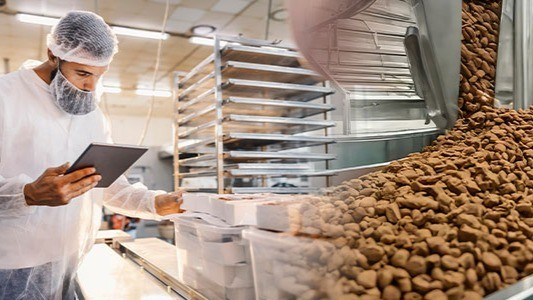
Building a strong brand reputation takes years, but it only takes seconds to ruin it. Food and beverage companies in the UK are fully aware of this, which is why they strive to consistently deliver high-quality products that meet regulatory standards set by authorities such as the British Retail Consortium (BRC) and the Food Standards Agency (FSA). However, like any other industry, the food sector faces significant challenges around supply chain management, quality control, cost efficiency, and more. To address these challenges efficiently, food manufacturers require a technological partner—specifically an ERP for food industry system.
Reasons Leading Food and Beverage Brands Rely on Food ERP
Product Innovation – Today's consumers demand continuous innovation. Food and beverage ERP software, like BatchMaster ERP, helps brands introduce new products while maintaining existing lines. This ensures they attract new customers while retaining their loyal customer base.
Inventory Management – The food and beverage sector is uniquely affected by constraints such as shelf-life and product expiry. An ERP for food and beverage automates inventory updates, tracks shelf-life, and manages expiry dates. The auto-replenishment feature ensures that brands always have the optimal inventory levels, reducing waste and capitalising on sales opportunities.
Recipe Management – Recipes are the foundation of the food industry. ERP for food systems allow brands to develop, store, and refine recipes, providing tools to compare various ingredient combinations for optimal market-ready products. Well-managed recipes positively impact customer satisfaction and profitability.
Production Planning – With growing concerns over food waste in the UK, food brands are focusing on improving production planning to reduce waste and minimise financial losses. Food and beverage ERP software optimises production scheduling, streamlines procurement, and facilitates batch control to enhance overall efficiency.
Allergen Management – Food safety is critical, and managing allergens is a significant part of that. ERP systems allow businesses to track allergens, store them separately, and ensure they meet regulatory limits. Additionally, allergen labelling and tracking reduce the risk of recalls and enhance customer trust.
Compliance Adherence – The food and beverage industry must comply with numerous national and international regulations, including those from the FSA and BRC. ERP systems for food industry help ensure brands meet these standards, including nutritional labelling requirements in the UK. This system simplifies compliance by calculating and displaying nutritional values according to specific legal standards.
Cost Calculation – Product cost calculations are often complex. An ERP for food processing simplifies the process, providing detailed cost breakdowns for individual products and formulas. Brands can compare multiple formulas, packaging, and pricing options to select the most profitable and consumer-friendly choices.
Finding Alternatives – To develop cost-effective or innovative products, ERP systems offer "what-if" analysis, allowing brands to test alternative ingredients in formulas. This helps assess the impact on both cost and product quality. For example, sugar-free ice cream can use alternatives that do not significantly increase costs while maintaining the desired taste.
Quality Control – Quality is the foundation of every successful food brand. Food and beverage ERP solutions integrates quality control at every stage of production, ensuring only top-quality ingredients are used, leading to consistently high-quality products.
Product Consistency – Consistency is key to ensuring a reliable customer experience. ERP systems for food and beverage store information about approved suppliers and vendors to guarantee that only the best-quality ingredients are used in production. SOPs stored in the system ensure uniform production processes across all facilities, delivering consistent results in every batch.
Which ERP to Choose for Your Food and Beverage Business?
With numerous options available, BatchMaster ERP stands out. With over four decades of experience, it is trusted by top food and beverage brands worldwide. As a pioneer in formulation management, BatchMaster offers cloud, on-premises, and hybrid deployment models to meet the unique needs of the food sector, including bakery ERP software.
0 notes
Text
ERP for Manufacturing in the Food Industry
In the highly competitive food manufacturing sector, efficiency, quality, and regulatory compliance are critical to success. Managing these aspects can be challenging, given the complexities of sourcing, production, inventory, and distribution. This is where Enterprise Resource Planning (ERP) software plays a transformative role, offering a streamlined approach to managing operations across the entire value chain.
The Role of ERP in Food Manufacturing
ERP software serves as a central hub that integrates all business functions, from procurement to production and distribution. In the food industry, where factors like perishability, food safety regulations, and fluctuating market demand add extra layers of complexity, ERP systems provide the necessary tools to navigate these challenges effectively.
By consolidating operations into a single platform, ERP software allows manufacturers to manage processes with greater accuracy, speed, and reliability. From tracking raw materials to monitoring production and ensuring timely delivery, ERP systems enhance efficiency while minimizing waste and errors.
Addressing Industry-Specific Challenges
Food manufacturers face unique challenges, such as maintaining product quality, adhering to stringent safety standards, and managing inventory efficiently. ERP software is specifically designed to address these needs.
Traceability is one of the most critical aspects of food manufacturing. With ERP, businesses can track every ingredient and product batch from origin to delivery. This not only ensures compliance with safety regulations but also facilitates quick responses in case of product recalls or quality concerns.
Another key feature is regulatory compliance management. Food manufacturers must adhere to various standards, including HACCP, FDA, and FSSAI guidelines. ERP systems simplify this by automating documentation, tracking safety measures, and generating reports as required.
Additionally, inventory management is streamlined with real-time tracking and monitoring. This is especially important in the food industry, where perishable goods require careful handling to minimize waste and reduce costs. ERP solutions for the food industry help businesses maintain optimal inventory levels and avoid overstocking or shortages.
Benefits of ERP for Food Manufacturers
Implementing ERP software in manufacturing brings a host of advantages. It improves operational efficiency by automating repetitive tasks and reducing manual errors. The system also provides real-time insights into production, inventory, and costs, enabling manufacturers to make informed decisions quickly.
Moreover, ERP software enhances customer satisfaction by ensuring timely delivery and consistent product quality. Its ability to adapt to changing market demands gives businesses the flexibility to respond to new trends and consumer preferences with ease.
ERP software is no longer a luxury for food manufacturers—it’s a necessity. By integrating and automating critical processes, ERP systems empower businesses to stay competitive, improve efficiency, and ensure compliance in a rapidly evolving industry.
For tailored ERP solutions designed to meet the unique needs of food manufacturing, you can explore more on ERP for Food and Beverage Industry here: https://www.lighthouseindia.com/Food-Beverages-erp.html.
#erp#erp software#erp system#techsolutions#erp implementation#erp services#erp solutions provider#innovation#technology#industry solutions#manufacturing#erp for manufacturing#erp for food agro and dairy#food erp#agro erp#dairy erp
0 notes
Text
Adapting to Industry 4.0 with Advanced Food Manufacturing Software
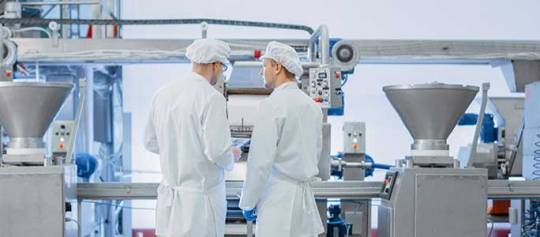
Industry 4.0 is defined as the integration of high-end technologies into industrial processes, facilitating food manufacturing industry to enhance efficiency, ensure product quality, and meet evolving consumer demands while enabling insights-driven decision making.
The fourth-industrial revolution encompasses a set of technologies including IoT networks, AI, Big Data, robotics, and automation. These capabilities bridge the gap between both Physical and Digital Worlds, making systems smarter and more autonomous.
Amidst this transition, food manufacturing ERP systems are also evolving by incorporating industry 4.0 capabilities, being called as advanced food manufacturing software now.
Many food manufacturers, who are still dependent on the standard food manufacturing solution, are looking to upgrade to the advanced food manufacturing software.
See how the advanced food manufacturing solution helps-
Through Digital Transformation- The benefits of Industry 4.0 technologies such as IoT and AI, in the context of food manufacturing, involves real-time monitoring of processes, predictive maintenance, etc.
These technologies facilitate connecting sensors, devices, etc., throughout the production line, allowing for continuous data collection and analysis to ensure equipment performance, production efficiency, and product quality.
By Enhancing Quality & Safety- Ensuring safety and quality in food manufacturing is of paramount importance, and an advanced food manufacturing software does this flawlessly. Its AI and Machine Learning algorithms monitor and control every aspect of the production process by analysing data from multiple sources such as raw materials quality, environmental conditions, and production parameters, ensuring that product meets all the required standards.
By Optimizing Supply Chain Management- Efficient management of supply chain is the secret to business profitability. An advanced food manufacturing software integrates IoT within the supply chain which provides manufacturers real-time visibility, predictive analysis, lot traceability solution and enhanced communication capabilities.
This enables better demand forecasting, optimized inventory management, and reduced lead times.
By Driving Sustainability- Ever-increasing health concerns have made consumers more conscious. They demand environmentally friendly practices. Advanced Food Manufacturing Software with data analytics capability, identify inefficiencies in resource utilization, allowing manufacturers to take informed decisions that reduce their environmental footprint.
It’s clear from the above discussion that leveraging industry 4.0 benefits necessitates adopting an advanced, and no other option would prove as effective as BatchMaster ERP.
Give us a call now to talk to our experts.
0 notes
Text
Hi if you have anxiety or a phobia or trauma behind your arfid, I can't recommend enough that you try "exposure response prevention" therapy.
And you know what's wild? It's much less scary than you'd think. Literally part of it is not trying challenges that feel too scary. I would feel SO POWERFUL when I would complete a challenge.
Am I eating like a "normal person"? No, but I've got physical stuff going on that limits how close to "normal" I can get. But I AM eating a MUCH more balanced diet, a more varied diet, and still adding more foods to my "feels safe" list on my own.
Anyway, I hope this helps someone. I had to do a lot of digging and calling places and spent much too much time with a therapist who was a terrible fit before I found anyone who had treated someone with arfid before, only to find out that, basically, I just needed "make the scary part not scary" therapy.
Good luck :)
#arfid#actually arfid#avoidant restrictive food intake disorder#phobia#anxiety#erp therapy#what even is tagging#i dont know im just writing the post i wish id found like five years ago#erp also helped with a bunch of other stuff i was avoiding out of fear#anxiety is a bitch
5 notes
·
View notes
Text
Eighty6 was founded to streamline and facilitate the entire procurement process, thus changing the way the food service sector procure. We are an enterprise software solution that bridges the gap in fulfillment and communication between suppliers and buyers in the Food and Beverage sector.
We partner with suppliers and independent food distributors to improve and digitize their internal processes, providing leading technology solutions tailored to their needs.
2 notes
·
View notes
Text
The Benefits of Automating Accounts Payable
Automate accounts payable to eliminate time-consuming manual processes and improve overall efficiency in financial operations. This approach leverages technology to handle repetitive tasks like invoice processing, approvals, and payments, reducing errors and increasing accuracy. Automation ensures that invoices are processed promptly, helping organizations maintain positive relationships with vendors while optimizing cash flow.
One of the key advantages of automation is its ability to provide real-time tracking and reporting capabilities. Businesses can monitor the status of payments, identify bottlenecks, and generate insights to improve decision-making. By replacing manual workflows with automated systems, companies gain a competitive edge by cutting costs, saving time, and reallocating resources to strategic activities.
Why AP Automation is a Game-Changer
AP automation transforms the way businesses manage their accounts payable processes. It simplifies the approval workflow, ensuring invoices are routed to the right personnel for timely sign-off. Automation reduces the risks associated with manual errors, duplicate payments, and fraud, making it a valuable tool for financial teams.
With AP automation, businesses can achieve faster turnaround times, improve vendor relationships, and enhance overall operational efficiency. The technology is scalable, meaning it can adapt to the needs of growing organisations, providing long-term value and stability in managing payables.
Streamlining Processes with Accounts Payable Accounting Software
Accounts payable accounting software offers comprehensive solutions for businesses seeking to modernize their financial workflows. This software helps track invoices, match purchase orders, and automate data entry, significantly reducing the administrative burden on accounts payable teams.
Advanced features, such as custom reporting and real-time analytics, allow companies to gain better insights into their financial operations. By adopting these systems, businesses can ensure compliance with industry regulations while optimising payment cycles and maintaining accurate financial records.
Tailored Accounts Payable Solutions for Modern Businesses
Accounts payable solutions are designed to address the specific challenges faced by organizations in managing their payables. These solutions offer automated workflows, seamless integration with existing systems, and enhanced visibility into the payment lifecycle.
By implementing these solutions, businesses can eliminate inefficiencies, improve communication with vendors, and reduce the risk of late payments. The scalability of these systems ensures they can grow alongside the organisation, making them a valuable asset for long-term financial management.
AI Powered AP Automation for Smarter Financial Management
AI powered AP automation takes traditional automation a step further by incorporating artificial intelligence into accounts payable processes. AI enhances accuracy by learning from historical data and identifying patterns to detect errors or discrepancies automatically.
This technology also provides actionable insights, allowing businesses to optimise payment terms and improve overall cash flow. With AI-driven capabilities, companies can ensure faster processing, better compliance, and increased productivity, making it an essential tool for modern financial operations.
The Role of Accounts Payable AI in Efficiency
Accounts payable AI introduces a new level of intelligence to financial workflows, helping businesses achieve greater efficiency and accuracy. This advanced technology automates data entry, flags anomalies, and prioritizes invoices based on urgency, enabling teams to focus on strategic tasks.
By integrating AI into accounts payable processes, organisations can reduce operational costs and ensure timely payments, ultimately improving vendor relationships and operational performance. The use of AI also helps in maintaining compliance and creating a transparent, streamlined workflow.
AP Automation Software for Future-Ready Financial Operations
AP automation software provides businesses with an all-in-one platform to manage invoices, payments, and approvals efficiently. With intuitive interfaces and robust functionalities, this software eliminates bottlenecks and improves workflow consistency.
Companies leveraging AP automation software benefit from faster invoice processing times, reduced errors, and comprehensive reporting capabilities. By adopting this technology, businesses can future-proof their accounts payable processes, ensuring scalability and adaptability to evolving financial demands.
#sage x3 distribution#sage x3 cannabis#sage x3 food and beverage#food beverage erp software#distribution erp software#sage
0 notes
Text
Boost Efficiency in Food & Beverage with Nowara ERP Solutions Today!
In today's fast-paced world, efficiency is key to thriving in the competitive ERP Solutions for Food & Beverage Industry With the constant demands of production, supply chain management, and customer satisfaction, it can be challenging to keep everything running smoothly. Enter Nowara ERP, an all-in-one solution designed to optimize business processes, reduce operational costs, and improve overall efficiency.
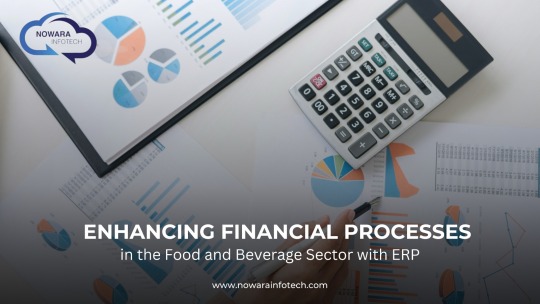
What is Nowara ERP?
Before diving into how Nowara ERP can transform your food and beverage operations, let’s first understand what it is. Nowara ERP (Enterprise Resource Planning) is a comprehensive software solution designed specifically for the food and beverage sector. It integrates various business functions such as procurement, production, inventory management, sales, and distribution into one unified platform.
Key Features of Nowara ERP:
Real-time data tracking across all business processes
Supply chain management tools for seamless product movement
Inventory and recipe management to streamline production
Compliance tracking to ensure product safety
Analytics and reporting for business insights
How Nowara ERP Revolutionizes Food & Beverage Operations
Now that we know what Nowara ERP is, let’s take a closer look at how it can revolutionize food and beverage operations. Whether you're managing a large food manufacturing facility or a chain of restaurants, Nowara ERP provides solutions to streamline your processes and improve productivity.
Streamlining Supply Chain Management
Managing the supply chain can be a logistical nightmare, especially when dealing with perishable goods. Nowara ERP simplifies this by offering end-to-end visibility. From tracking raw materials to monitoring delivery schedules, Nowara ERP ensures everything runs smoothly. The system also includes demand forecasting features to help businesses plan and optimize inventory levels, reducing the risk of overstocking or stockouts.
Enhancing Inventory Control and Management
Inventory management is critical in the food and beverage industry, where stock levels fluctuate frequently, and products have limited shelf lives. With Nowara ERP, businesses can automate stock replenishment, reducing the chances of over-ordering or running out of stock. Real-time inventory tracking ensures that businesses always have the right amount of stock available, reducing waste and spoilage.
Improving Recipe and Production Management
Consistency is key when it comes to food production. With Nowara ERP, businesses can standardize recipes and production processes, ensuring consistent product quality across all locations. The system also helps optimize production scheduling, allowing businesses to manage their resources more efficiently and reduce errors in manufacturing.
Key Benefits of Nowara ERP for the Food & Beverage Industry
Implementing Nowara ERP brings a wide range of benefits to food and beverage businesses, from improved efficiency to enhanced customer satisfaction.
Increased Productivity and Reduced Costs
By automating routine tasks and providing real-time insights, Nowara ERP helps businesses boost their productivity while reducing labor costs. With optimized inventory and production processes, companies can lower waste and spoilage, leading to significant cost savings.
Real-Time Data and Insights
Nowara ERP offers businesses access to real-time data, allowing for informed decision-making. From tracking sales trends to monitoring production efficiency, businesses can gain valuable insights that drive better strategies and faster problem-solving.
Improved Customer Satisfaction and Service
With features like efficient order processing, real-time inventory management, and optimized delivery schedules, Nowara ERP ensures that customers receive their orders on time and in perfect condition. The result? Enhanced customer satisfaction and stronger relationships.
How Nowara ERP Improves Supply Chain Efficiency
Efficient supply chain management is essential for success in the food and beverage industry. Nowara ERP makes it easier to manage every aspect of the supply chain, from procurement to distribution.
End-to-End Visibility
Nowara ERP offers full visibility into the supply chain, providing businesses with up-to-date information on the status of their orders, deliveries, and inventory. This transparency makes it easier to identify potential issues before they escalate.
Demand Forecasting and Planning
Nowara ERP includes powerful forecasting tools that help businesses predict demand for their products, allowing them to plan their production schedules accordingly. Accurate demand forecasting leads to better resource allocation and less waste.
Supplier Management
The software also includes features to help businesses manage their relationships with suppliers. Businesses can track supplier performance, negotiate better terms, and ensure that deliveries arrive on time.
Inventory Control with Nowara ERP
Effective inventory management is one of the cornerstones of a successful food and beverage business. Nowara ERP offers a suite of tools to help businesses manage their inventory more efficiently.
Automating Stock Replenishment
Nowara ERP automates the process of stock replenishment, ensuring that businesses always have enough inventory to meet demand. The system uses real-time data to trigger reorder alerts when stock levels are running low, reducing the risk of running out of critical items.
Minimizing Waste and Spoilage
By tracking expiration dates and monitoring stock levels, Nowara ERP helps businesses reduce waste and spoilage, ensuring that products are sold before they expire and minimizing losses.
Real-Time Tracking of Ingredients and Raw Materials
With Nowara ERP, businesses can track the movement of raw materials and ingredients from suppliers to production facilities in real-time. This improves traceability and helps businesses maintain accurate inventory records.
Recipe and Production Management with Nowara ERP
Nowara ERP helps food and beverage businesses streamline their recipe and production processes, ensuring that products are made efficiently and consistently.
Standardizing Recipes
Nowara ERP allows businesses to standardize recipes, ensuring that the quality and taste of products remain consistent across all locations. The software can also track ingredient usage, helping businesses reduce waste and optimize ingredient purchasing.
Optimizing Production Scheduling
Production scheduling tools within Nowara ERP help businesses allocate resources efficiently, ensuring that production runs smoothly and on time. The software also provides insights into production bottlenecks, helping businesses address issues before they impact operations.
Reducing Errors in Manufacturing
By automating routine tasks and providing real-time data, Nowara ERP reduces the chances of errors during production. Businesses can monitor the production process in real-time, ensuring that everything is running as planned.
Sales and Distribution Management
Effective sales and distribution management are essential for success in the food and beverage industry. Nowara ERP provides businesses with tools to optimize their sales and distribution operations.
Efficient Order Processing
With Nowara ERP, businesses can automate order processing, ensuring that customer orders are handled quickly and accurately. The system can generate invoices, process payments, and update inventory levels in real-time.
Distribution and Delivery Optimization
The system also helps businesses optimize their delivery schedules, ensuring that products are delivered to customers on time and in good condition. By tracking deliveries in real-time, businesses can improve their logistics and reduce delays.
Customer Relationship Management (CRM) Features
Nowara ERP includes built-in CRM features to help businesses manage their customer relationships. The software allows businesses to track customer preferences, order history, and feedback, ensuring that customers receive personalized service.
Compliance and Quality Control with Nowara ERP
Maintaining compliance and quality control is critical in the food and beverage industry. Nowara ERP provides tools to help businesses meet regulatory requirements and ensure product safety.
Meeting Industry Regulations and Standards
Nowara ERP helps businesses stay compliant with industry regulations by tracking certifications, licenses, and audits. The software also ensures that businesses adhere to food safety standards, reducing the risk of costly violations.
Ensuring Product Safety and Consistency
The system includes features to help businesses monitor product quality and consistency. By tracking ingredients, production processes, and final products, Nowara ERP ensures that businesses maintain high-quality standards.
Managing Traceability and Certifications
Nowara ERP provides businesses with tools to manage traceability and certifications, ensuring that products meet industry standards and are safe for consumption.
Integration with Other Business Systems
Nowara ERP seamlessly integrates with other business systems, making it easy to streamline operations and improve efficiency across the entire organization.
Seamless Integration with Accounting and HR Systems
The software integrates with accounting and HR systems, ensuring that financial and payroll data are up-to-date and accurate. This reduces the need for manual data entry and eliminates the risk of errors.
Cloud-Based Accessibility for Remote Teams
As a cloud-based solution, Nowara ERP provides remote teams with access to real-time data, ensuring that employees can collaborate and make decisions from anywhere.
Integration with POS and E-Commerce Systems
Nowara ERP integrates with point-of-sale (POS) and e-commerce systems, providing businesses with a unified platform to manage sales, inventory, and customer data.
Case Studies: Success Stories of Food & Beverage Companies Using Nowara ERP
Businesses across the food and beverage industry have benefited from Nowara ERP. For example, a large-scale bakery chain was able to streamline their production process, reduce waste, and improve inventory management, resulting in a 25% reduction in operational costs.
How to Get Started with Nowara ERP
Getting started with Nowara ERP is easy. Simply follow these steps:
Contact Nowara ERP for a consultation.
Work with the team to customize the system for your business.
Train your employees on how to use the system.
Go live and start enjoying the benefits of improved efficiency.
Training and Support Options
Nowara ERP offers comprehensive training and support options to ensure that your team can make the most of the software. From initial onboarding to ongoing support, Nowara ERP is there every step of the way.
Challenges to Consider When Implementing ERP Solutions
While Nowara ERP offers many benefits, businesses should be aware of the challenges that come with implementation. Common challenges include:
Resistance to change from employees
Data migration and integration issues
Customization needs
Conclusion
Nowara ERP is a powerful tool that can significantly boost efficiency in the food and beverage industry. From supply chain management to recipe optimization and sales distribution, Nowara ERP provides businesses with the tools they need to thrive. By implementing Nowara ERP Solutions for Food & Beverage Industry can improve their operations, reduce costs, and enhance customer satisfaction.
FAQs
What is the cost of implementing Nowara ERP in the Food & Beverage industry? The cost of implementing Nowara ERP depends on the size and complexity of your business. It’s best to contact Nowara for a custom quote.
How long does it take to implement Nowara ERP? Implementation time can vary, but typically, it takes 3-6 months to fully integrate Nowara ERP into your operations.
Can Nowara ERP be customized for my business needs? Yes, Nowara ERP is highly customizable to meet the specific needs of your food and beverage business.
Is Nowara ERP compatible with existing systems? Nowara ERP integrates seamlessly with many existing business systems, such as accounting and HR software.
What kind of support does Nowara ERP provide post-implementation? Nowara ERP offers ongoing support through training, technical assistance, and regular system updates.
1 note
·
View note
Text
0 notes
Text
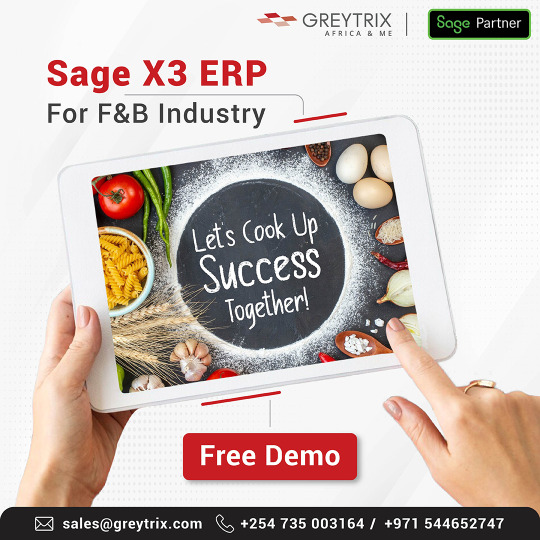
ERP Beverage Industry
Address food and beverage service gaps seamlessly with Sage X3 food and beverage ERP software and overcome industry challenges.
#greytrix africa ltd#erp software#sage erp#sage x3#food and beverage#food#food and beverage industry
0 notes
Text
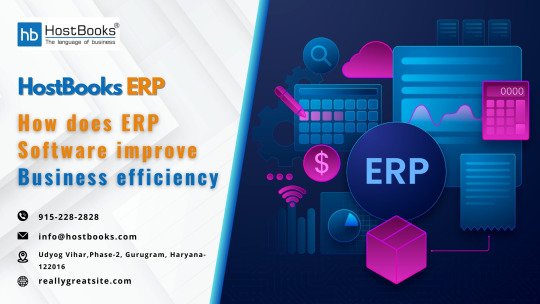
Best ERP for Garment Manufacturing Companies | HostBooks Limited?
This article discusses the importance of ERP systems in garment manufacturing, detailing how they streamline production, inventory, and supply chain management. It highlights HostBooks Limited's tailored ERP solutions designed to meet the unique needs of garment manufacturers. With cloud-based technology, real-time data access, and industry-specific features, HostBooks ERP enhances efficiency, reduces costs, and enables seamless integration across all business processes. Whether you're looking to optimize production schedules or improve financial visibility, HostBooks Limited provides the tools to help your garment manufacturing business thrive in a competitive market.
0 notes
Text
ERP Software for Meat Processors: A Comprehensive Guide for UK Manufacturer
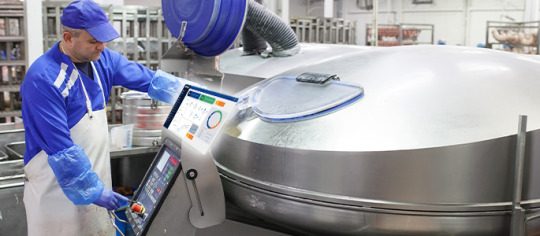
Meat manufacturing is one of the most complex industries in the food sector not just in the United Kingdom (UK) but globally. If meat is not handled properly, there is a higher risk of infection and diseases – making this industry one of the most sensitive and challenging segments amongst the other food verticals.
Also, there are hiccups related to catch weight calculations, poultry management (in terms of feeding, hygiene, and wellness), perishability, and the complexities of assigning grades and cuts to meat products. Adding more are the health issues related to meat consumption, that often stem from the living conditions of the animals, and any negligence in the supply chain or storage can lead to contamination.
This poses serious risks to consumer health and often raises red flags among regulators. Consequently, meat manufacturers are under constant pressure to comply with industry standards, while navigating intensifying competition, shrinking profit margins, delivering high-quality products, and managing the entire supply chain. Not to forget, today's consumers are increasingly health-conscious and demand products that meet strict nutritional and safety standards. This puts additional pressure on manufacturers, who not only have to meet these expectations but also face the challenge of accurately conveying all the necessary information on labels and packaging. But wait, there are more challenges in the basket, such as:
Adhering to cGMP (current Good Manufacturing Practices) requirements
Managing raw materials and their shelf life
Ensuring worker safety and hygiene
Managing fluctuating demand for products like beef and pork
Ensuring traceability throughout the production cycle
To effectively tackle these challenges, UK meat manufacturers are increasingly adopting ERP Software for Meat Processors. Meat Processing ERP software can streamline operations, ensure regulatory compliance, and uphold product quality across the production process.
Why Meat Processing ERP is the pressing need for UK Meat Manufacturers
A generic ERP system may fall short when it comes to meeting the unique demands of meat processors but ERP software for meat processors fit best, offering unique capabilities such as:
Inventory Management: Efficiently tracks raw materials, ingredients, co-products, and by-products. It also enables the better organization of inventory using various classification methods such as LIFO, FIFO, and FEFO while maintaining optimal stock levels to prevent stock-outs or overstocking.
Traceability: Monitors the entire journey of a product, from raw material intake to finished goods, ensuring complete traceability. It also helps meet product recall requirements with ease.
Yield and Cost Management: Accurately measures yield, scales production, and tracks costs, enabling manufacturers to optimize profitability by aligning production with demand.
Catch-Weight Functionality: Handles variable weights, ensuring that meat is priced accurately based on its exact weight, providing transparency and accuracy in pricing.
Quality Control: Implements comprehensive quality checks to meet industry standards like HACCP and cGMP. It also enables detailed sample inspections to ensure product quality.
Production: Streamlines the entire production process by optimizing production schedules, reducing downtime, helping monitor work-in-progress (WIP) inventory, tracking production output, and ensuring timely order fulfillment.
Expiration Tracking: Reduces waste by closely monitoring expiration dates and providing timely alerts when products are approaching their expiry.
Regulatory Compliance: Ensures compliance with industry-specific standards, including the Products Containing Meat (England) Regulations 2014, Food Information Regulations 2014, and the European Food Information to Consumers Regulation No 1169/2011 (FIC), helping avoid legal risks.
One ERP solution that offers all above stated and more capabilities to the meat industry is BatchMaster ERP. More than just software, it’s a strategic competitive advantage tailored specifically for the unique needs of UK meat processors. It enables them to digitize and optimize their entire supply chain cycle while offering all the capabilities essential to meet Formulation, R&D, Processing, Quality, Compliance, Finance & Accounting, Inventory management, Planning and such needs.
Benefits of Meat ERP Software
Adopting a Meat ERP software offers several benefits to meat manufacturers, including:
Enhanced accountability, predictability, and scalability along with consistent and assured quality products.
Tight control over the costs and increased profit margin.
Unparalleled command over the business processes such as inventory management, production & distribution.
Improved efficiency as well as bottom line.
Consistency in operations.
Informed decision making.
Ability to demonstrate regulatory compliance.
Improved customer service that results in greater customer satisfaction.
Competitive advantage.
Discover how a ERP for food like BatchMaster can help you stay ahead of the curve, tackle industry challenges, and grow your business confidently. Click here to transform your operations today!
0 notes
Text
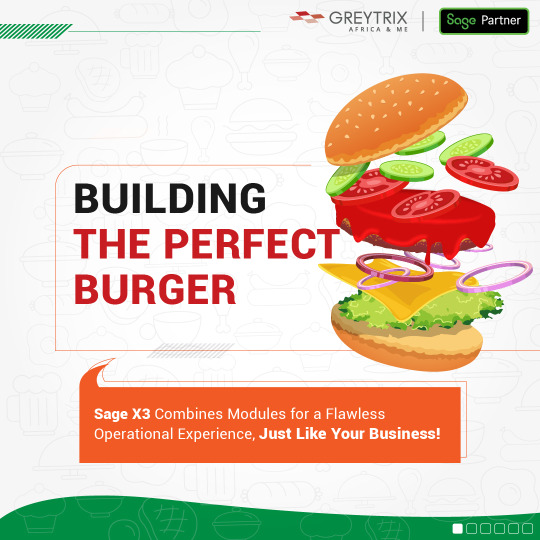

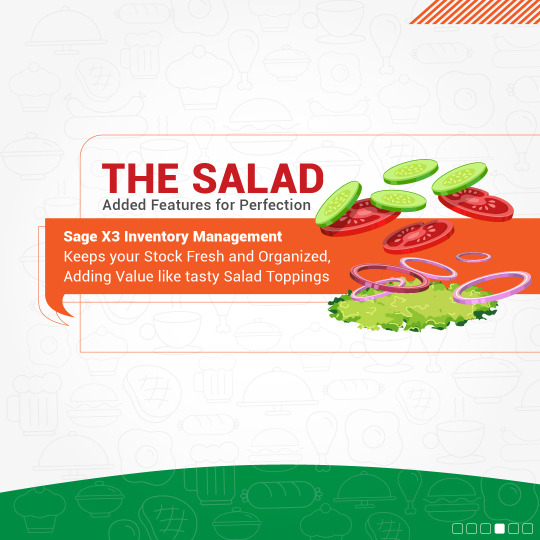
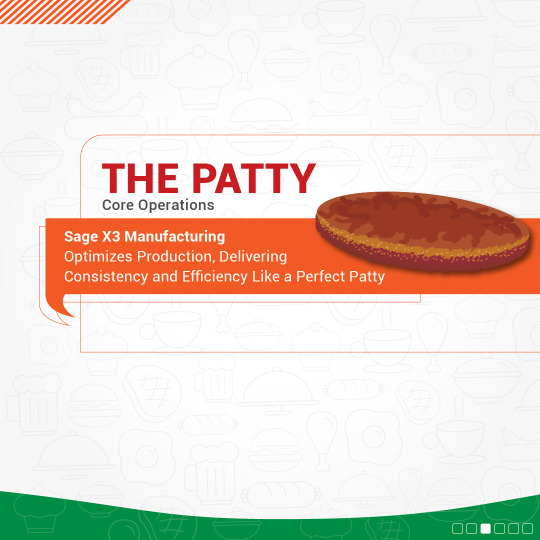
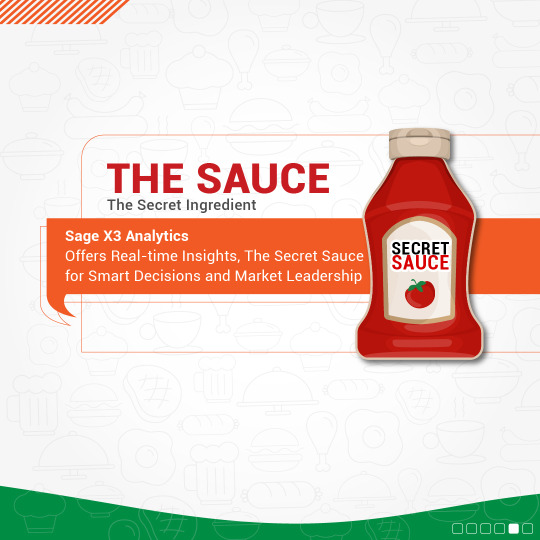

ERP For Food And Beverage Industry
Sage X3 ERP is the best food manufacturing software. It offers recipe- formula-based manufacturing designs for businesses in Middle East.
0 notes
Text
Choosing the Right ERP Software for Sugar Processing Businesses Factors to Consider

Sugar processing business navigates through various intricate processes like maintaining harvesting details, making various types of sugar, extracting sugarcane juice, filtering, and washing raw sugar etc.
These processes need meticulous approach and precise procedures to carry them out flawlessly. Only an industry specific ERP can do the job effortlessly and therefore, sugar manufacturers ought to deploy a sugar ERP.
What features does a sugar ERP possess?
There are some must-have features for a sugar ERP. These features are worth considering while choosing an ERP software for the industry:
Sugarcane Growth Tracking- An ERP software for sugar processing must have capabilities to track growth and development of sugarcane crops. An alert as sugarcane ripe is one such capability. This feature helps to keep a track of harvest and full cycle of sugarcane.
Quality Checks- Quality Control is essential for sugar industry. Ability to check quality at every stage of supply chain is second to none. Be it monitoring sugar crystal size, colour and purity levels, ERP should facilitate inspecting and managing their results in the form of numeric, alphanumeric, and pass/fail values. This enables early identification and mitigation of quality-related issues which proves beneficial for maintaining high standards.
Efficient Planning & Production Scheduling- This feature of sugar ERP software is non-negotiable. ERP systems should be smart enough to optimize production schedule, allocate resource and manage inventory. This capability helps to utilize available time and resources during the brief crushing season, ensuring maximum sugar production in limited time.
Regulatory Compliance- A sugar ERP can act as an aggregator and helps sugar manufacturers to adhere to FDA, FSSAI, and other regulatory authorities. The system should also keep track of licenses and certifications, preventing potential legal fines.
Moreover, a ERP software will be a perfect fit for a sugar industry if it can:
adjust formulas or recipes to meet labelling requirements.
generate nutritional labels compliant with FDA/ FSSAI/ cGMP regulations.
Strong Supplier Database- Supplier of raw materials is the starting point of quality in sugar supply chain. Only quality raw material from suppliers can assure quality sugar.
Capability of a sugar manufacturing ERP to store a pool of verified suppliers’ make it an indispensable asset for sugar industry. By evaluating supplier performances on various criteria like lead time and quality, ERP helps manufacturers manage a strong supplier database.
Effective Picking, Packing & Shipments- Effective picking, packing, and tracking of shipped products can significantly influence your business and prevent losses. The sugar ERP system should allow manufacturers to pick & pack and track shipped products. Since, the process is done through digital interface, chances of wrong picking, packing, and shipping is negated.
Capable of Co-Product and by-product management- Sugar industry involves management of various by-products and co-products. An ERP software for sugar industry needs to have capabilities to manage them effectively. Not only in management, but a sugar ERP can help in effective costing and sale of these items.
Facilitate Batch Processing- An ERP software can bank upon its power of batch production and prove itself to be a fit for sugar industry. The tasks such as batch creation, sizing/scaling, issue, close, etc., must be automated and digitized to avoid errors and time delay. It ensures precise ingredient measurement, correct batch calculation and efficient process monitoring.
Allow Multiple packaging- Sugar can be sold in varied packaging sizes 500 gms, 1 Kg, 5 Kgs, etc. ERP software with capabilities to allow packaging of varied capacity should be the preferred choice of sugar manufacturers. Therefore, multiple packaging capability of sugar ERP is a big Yes feature of the software.
Among multiple options of ERP software for food manufacturing available in the market, the one which has got trust of several process manufacturing organizations across the globe is BatchMaster ERP. The software not only manages intricacies of sugar manufacturing industry but has vast experience of more than thirty years in the industry.
Also Read: Optimizing Supply Chain with Bakery Manufacturing ERP Software
#erp software#erp solutions#erp#food erp software#food erp#cloud erp#manufacturing#technology#sugar ERP
0 notes
Text
Food Distribution ERP Software | #1 Cloud Based ERP Software for Food Distributors in India
TheERPHub offers best Food Distribution ERP software in India. Experience easy ERP solutions tailored for traders, distributors, and retailers in the food & beverage industry.
#food distribution erp software#erp software for food distributors#food and beverage distribution software
0 notes
Text
Revolutionizing Food and Beverage Industry Standards with ERP Deployment
In the fast-paced food and beverage industry, managing supply chains, ensuring food safety, and maintaining regulatory compliance are essential. Implementing an ERP system can transform these operations. ERP enhances inventory management, food safety, compliance, and streamlines processes, aiding in better decision-making and significant cost savings. It raises industry standards through quality control, regulatory compliance, efficient supply chain management, cost control, and improved customer satisfaction. While the implementation process demands meticulous planning, choosing the right ERP system and involving key stakeholders are critical for success. Ultimately, an ERP system provides long-term benefits, making it a valuable investment for food and beverage companies.
#erp for food and beverage#food erp software#beverage erp#erp food industry#erp for food and beverage industry
0 notes
Text

Discover the advantages of SAP Business One, the top ERP choice in India. Benefit from its affordability, comprehensive support for decision-making and inventory management, and tailored solutions that meet your business's unique needs.
#erp#erp for manufacturing industry#sap business one partner in india#sap erp for small businesses#sap business one#best erp software company in india#sap erp for food & beverages#sapbusinessone
0 notes